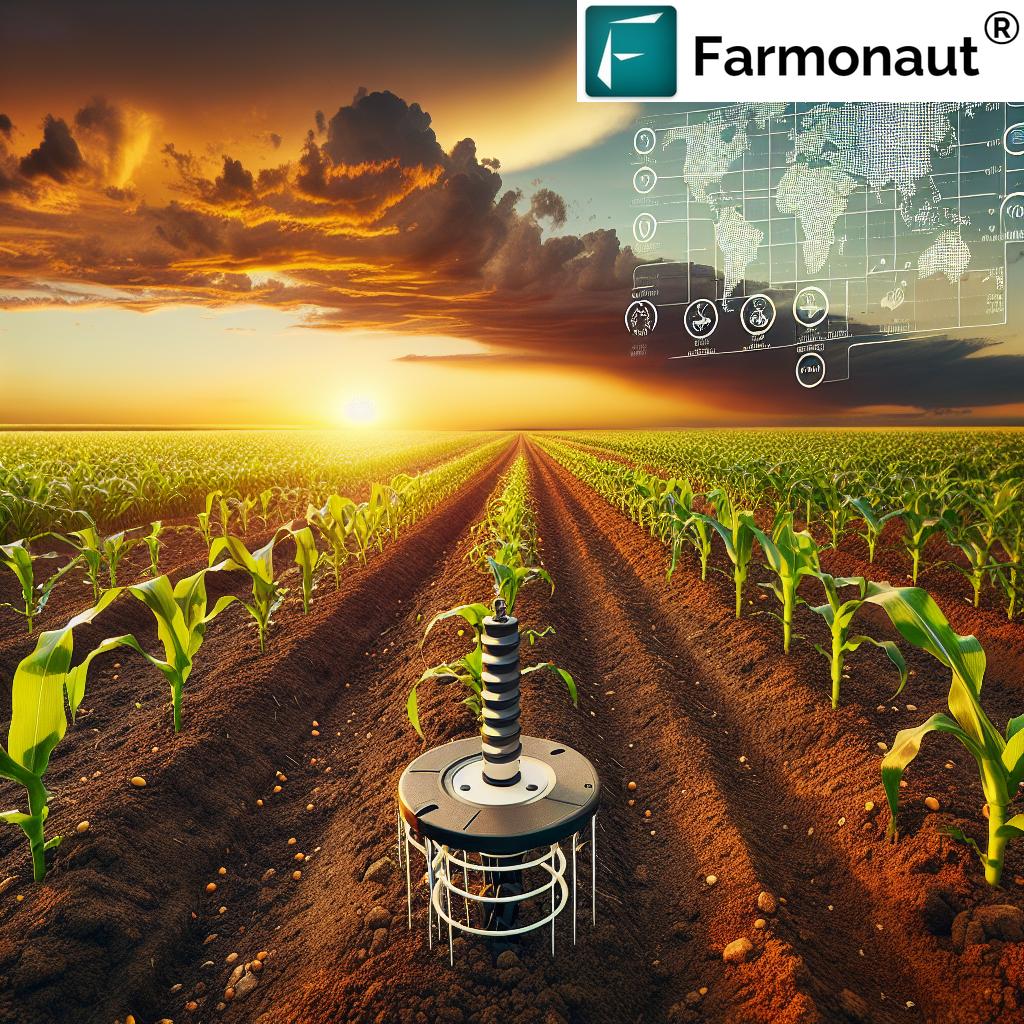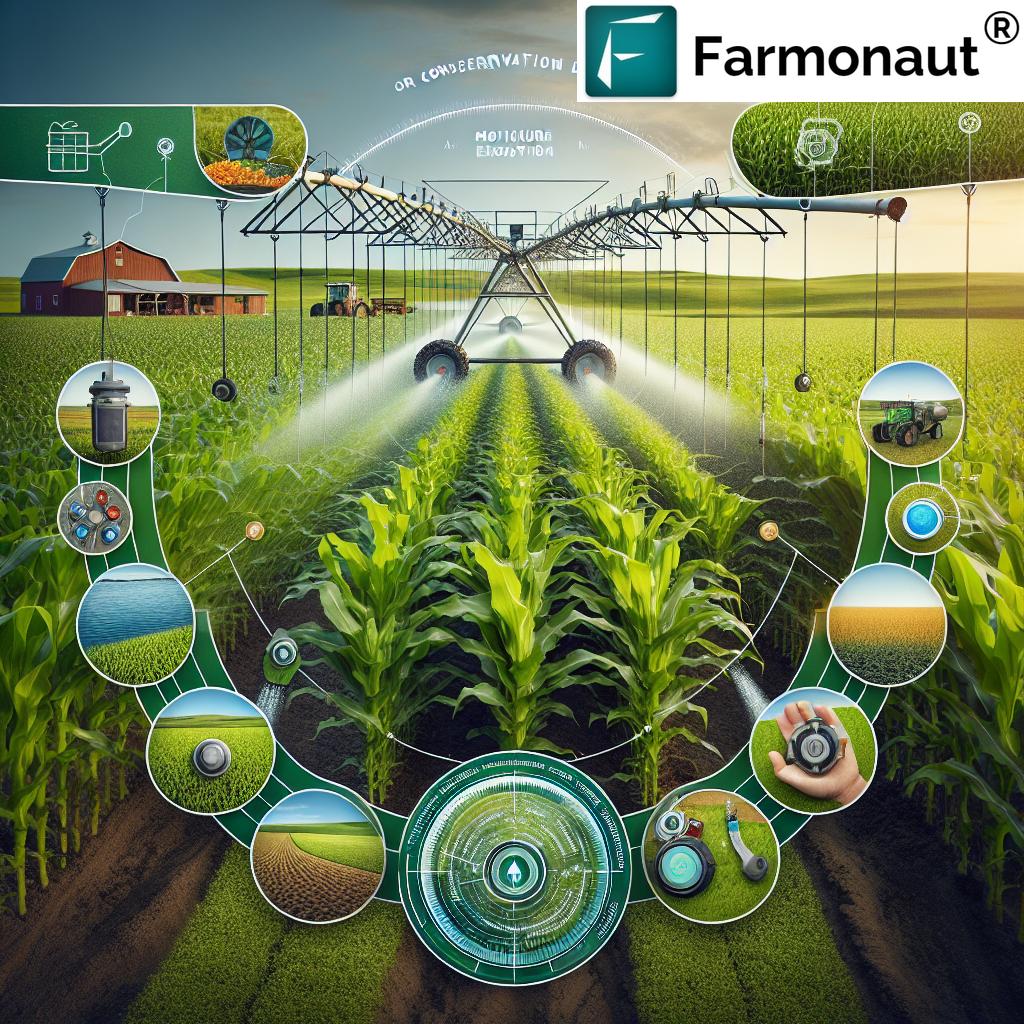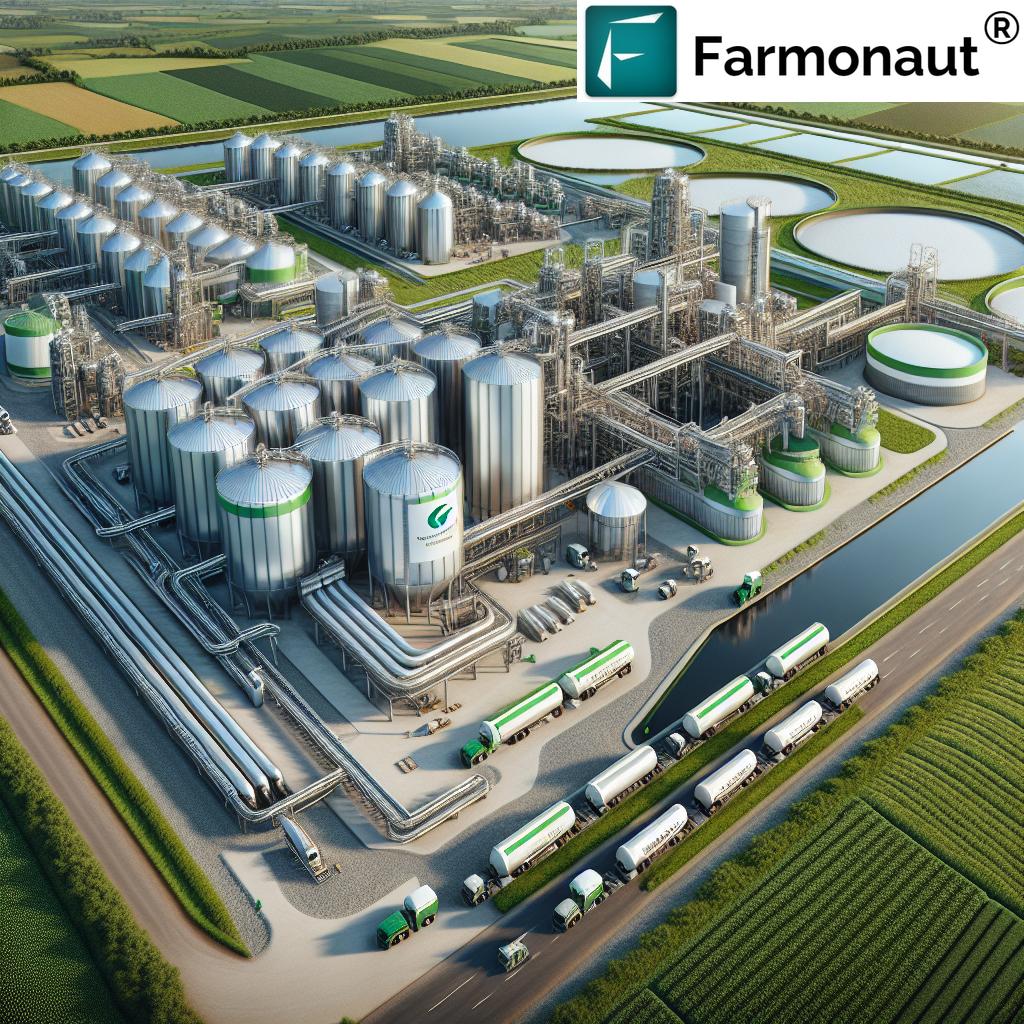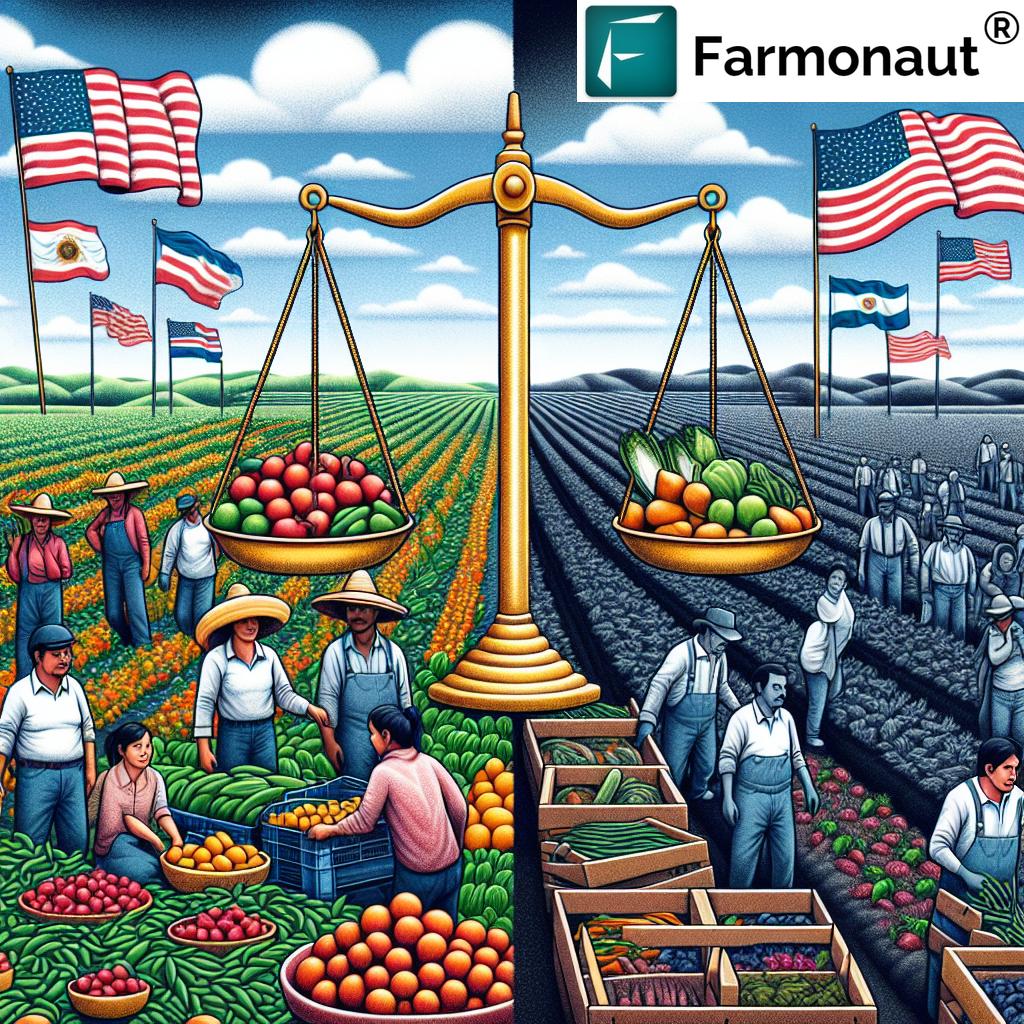Florida Farmers Adapt: Sustainable Water Management Techniques for Drought Resilience in Palm Beach County Agriculture
“Palm Beach County farmers recycle water in hydro cooling systems, preserving vegetable freshness and quality while conserving resources.”
As we delve into the heart of Florida’s agricultural landscape, we find ourselves amidst a revolution in farming practices. The Sunshine State, known for its lush produce and vibrant agricultural sector, is facing new challenges as the climate shifts and weather patterns become increasingly unpredictable. In this comprehensive exploration, we’ll uncover how Florida farmers, particularly those in Palm Beach County, are adapting to these changes with innovative and sustainable water management techniques.
The Changing Face of Florida Farming
Florida’s agriculture industry is a cornerstone of the state’s economy, providing fresh produce to millions across the nation. However, the weather in Florida has been anything but predictable in recent years. Farmers are grappling with warmer temperatures and drier conditions, especially during crucial growing periods. These shifts have necessitated a reevaluation of traditional farming methods, particularly when it comes to water management.
In Palm Beach County, a region renowned for its agricultural output, growers are at the forefront of this adaptation. The county’s unique geography and climate make it an ideal testing ground for innovative farming techniques that could shape the future of agriculture not just in Florida, but across the nation.
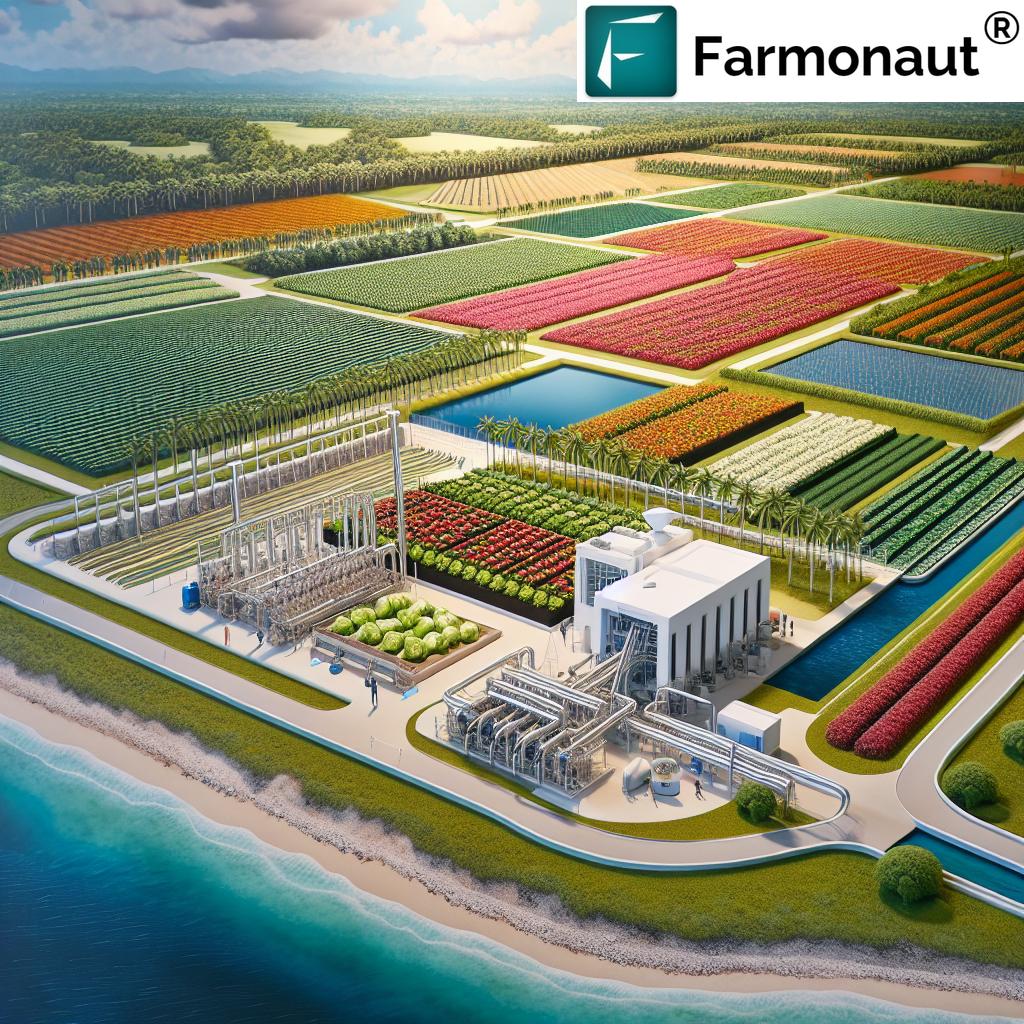
The Water Challenge in Palm Beach County
Palm Beach County’s agricultural sector faces a unique set of challenges when it comes to water management:
- Increasing periods of drought during critical growing seasons
- Rising costs associated with traditional irrigation methods
- The need to maintain high crop yield and quality despite water scarcity
- Environmental concerns and regulations regarding water usage
These challenges have spurred local farmers to innovate and adopt sustainable practices that not only conserve water but also improve overall farm efficiency.
Innovative Water Management Techniques
Let’s explore some of the cutting-edge techniques that Florida farmers are implementing to combat water scarcity and improve drought resilience:
1. Precision Irrigation Systems
One of the most significant advancements in water management has been the adoption of precision irrigation systems. These systems use a combination of soil moisture sensors, weather data, and crop-specific algorithms to deliver water exactly where and when it’s needed. This approach can reduce water usage by up to 30% compared to traditional irrigation methods.
Farmonaut’s satellite-based crop health monitoring system plays a crucial role in this area. By providing real-time data on vegetation health and soil moisture levels, Farmonaut enables farmers to make informed decisions about irrigation, ultimately optimizing water use and crop yields.
2. Hydro Cooling with Recycled Water
In the quest to maintain produce quality in hot weather, hydro cooling systems have become indispensable. These systems use chilled water to rapidly cool freshly harvested vegetables, preserving their freshness and extending shelf life. What makes this technique truly sustainable is the use of recycled water.
Pioneer Growers, a leading agricultural company in Palm Beach County, has implemented hydro cooling tunnels that circulate water at 32-33 degrees Fahrenheit. After cooling the produce, this water is then recycled back to the fields, creating a closed-loop system that minimizes waste and conserves this precious resource.
3. Drought-Resistant Crop Varieties
Florida farmers are increasingly turning to drought-resistant crop varieties as part of their water management strategy. These specially bred plants can thrive with less water, making them ideal for the region’s drier conditions. By incorporating these varieties into their crop rotations, farmers can maintain high yields while reducing overall water consumption.
4. Rainwater Harvesting
Making the most of every drop of rain is crucial in water-scarce environments. Palm Beach County farmers are implementing sophisticated rainwater harvesting systems that capture and store rainwater for use during dry periods. These systems not only provide a supplemental water source but also help reduce runoff and soil erosion.
5. Cover Cropping and Soil Health Management
Improving soil health is a key component of effective water management. Cover crops, when planted between main crop cycles, help improve soil structure, increase organic matter, and enhance the soil’s water-holding capacity. This practice not only reduces the need for irrigation but also promotes overall soil health, leading to more resilient and productive farmland.
“Florida’s agriculture industry adapts to climate change, with farmers implementing sustainable water management techniques across thousands of acres.”
The Role of Technology in Water Management
Technology plays a pivotal role in modern water management strategies. From satellite imagery to AI-powered analytics, farmers now have access to unprecedented levels of data and insight to guide their decision-making processes.
Satellite-Based Crop Monitoring
Farmonaut’s satellite-based crop monitoring system is at the forefront of this technological revolution. By providing real-time data on crop health, soil moisture, and weather patterns, Farmonaut empowers farmers to make data-driven decisions about water management. This technology allows for precise irrigation scheduling, early detection of crop stress, and optimized resource allocation.
Explore Farmonaut’s API for advanced agricultural insights
AI-Powered Advisory Systems
Artificial Intelligence is transforming the way farmers approach water management. AI systems can analyze vast amounts of data, including historical weather patterns, soil conditions, and crop performance, to provide personalized recommendations for irrigation and water conservation. These systems continually learn and adapt, becoming more accurate and valuable over time.
Discover Farmonaut’s API Developer Docs for integrating advanced agricultural data
IoT Sensors and Smart Irrigation Controllers
The Internet of Things (IoT) has brought a new level of precision to irrigation systems. Smart sensors placed throughout fields can monitor soil moisture levels, temperature, and other key variables in real-time. These sensors communicate with smart irrigation controllers, automatically adjusting water delivery based on current conditions and crop needs.
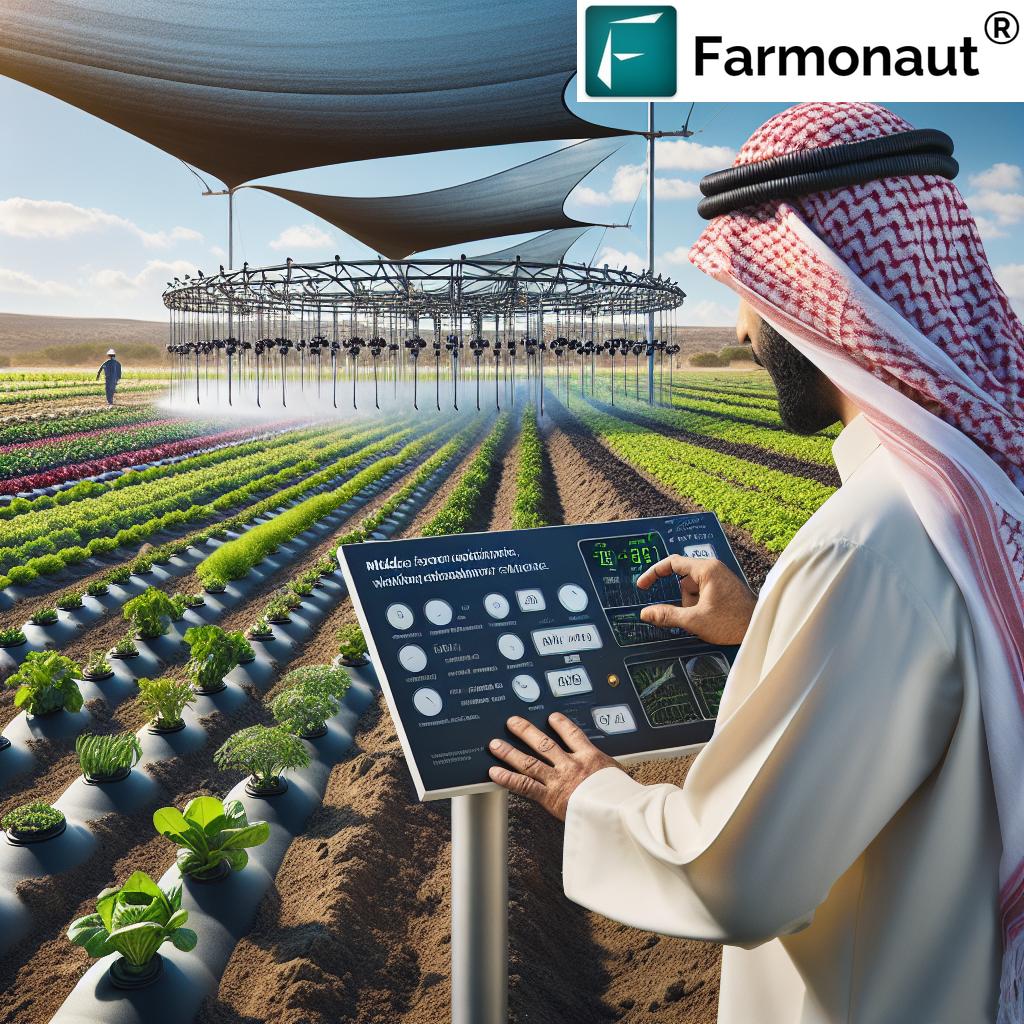
The Economic Impact of Sustainable Water Management
Implementing sustainable water management techniques isn’t just good for the environment – it’s also good for the bottom line. Let’s examine the economic benefits that Palm Beach County farmers are experiencing:
- Reduced Water Costs: By optimizing water use, farmers are seeing significant reductions in their water bills and pumping costs.
- Improved Crop Yields: Precision irrigation and soil health management lead to healthier plants and higher yields, increasing overall farm profitability.
- Energy Savings: Efficient irrigation systems require less energy to operate, resulting in lower electricity costs.
- Increased Resilience: Farms that implement these techniques are better equipped to withstand drought conditions, reducing the risk of crop failure and financial loss.
While the initial investment in new technologies and systems can be substantial, many farmers find that the long-term savings and increased productivity more than justify the costs.
Environmental Benefits of Sustainable Water Management
The adoption of sustainable water management techniques in Palm Beach County agriculture extends beyond farm boundaries, offering significant environmental benefits:
- Conservation of Water Resources: By reducing water waste and improving efficiency, these practices help preserve local water sources for future generations.
- Reduced Runoff and Pollution: Precision irrigation and soil management techniques minimize excess water runoff, reducing the transport of fertilizers and pesticides into local waterways.
- Soil Health Improvement: Practices like cover cropping and reduced tillage enhance soil structure and biodiversity, promoting long-term ecosystem health.
- Carbon Sequestration: Healthy soils and robust plant growth can help sequester carbon, contributing to climate change mitigation efforts.
These environmental benefits align with broader sustainability goals and help position Palm Beach County agriculture as a leader in eco-friendly farming practices.
Comparative Analysis of Water Management Techniques
To better understand the impact of various water management strategies, let’s examine a comparative analysis of traditional and sustainable techniques used by Florida farmers in Palm Beach County:
| Water Management Technique | Water Usage Efficiency (Estimated %) | Drought Resilience Rating | Implementation Cost | Environmental Impact | Crop Yield Impact (Estimated %) |
|---|---|---|---|---|---|
| Traditional flood irrigation | 40-50% | Low | Low | Negative | Baseline |
| Drip irrigation systems | 80-90% | High | Medium | Positive | +10-15% |
| Hydro cooling with recycled water | 70-80% | Medium | Medium | Positive | +5-10% |
| Drought-resistant crop varieties | 60-70% | High | Low | Neutral | +5-15% |
| Soil moisture sensors | 70-80% | High | Low | Positive | +10-20% |
| Rainwater harvesting | 60-70% | Medium | Medium | Positive | +5-10% |
This table clearly illustrates the advantages of sustainable water management techniques in terms of water efficiency, drought resilience, and crop yield. While some methods may have higher implementation costs, the long-term benefits to both farm productivity and environmental sustainability are significant.
Challenges and Future Outlook
Despite the progress made in sustainable water management, Palm Beach County farmers still face several challenges:
- Climate Uncertainty: Predicting future climate patterns remains difficult, making long-term planning challenging.
- Initial Investment Costs: Some sustainable technologies require significant upfront investment, which can be a barrier for smaller farms.
- Training and Education: Adopting new technologies and practices requires ongoing education and training for farm workers.
- Regulatory Compliance: Navigating changing water use regulations and ensuring compliance can be complex.
However, the future outlook for sustainable agriculture in Palm Beach County remains positive. As technology continues to advance and become more accessible, we expect to see even greater adoption of water-efficient practices. The integration of AI, machine learning, and IoT technologies promises to further optimize water use and crop management.
The Role of Farmonaut in Sustainable Agriculture
As we look to the future of sustainable agriculture in Palm Beach County and beyond, companies like Farmonaut are playing a crucial role. Farmonaut’s satellite-based farm management solutions are empowering farmers with the data and insights they need to make informed decisions about water management and crop health.
Key features of Farmonaut’s platform that support sustainable water management include:
- Real-time crop health monitoring using multispectral satellite imagery
- AI-driven advisory systems for personalized farm management strategies
- Soil moisture level tracking to optimize irrigation schedules
- Weather forecasting integration for proactive decision-making
By leveraging these technologies, farmers can significantly improve their water use efficiency, reduce costs, and increase crop yields – all while promoting environmental sustainability.
Conclusion: A Sustainable Future for Florida Agriculture
As we’ve explored throughout this article, Florida farmers, particularly those in Palm Beach County, are at the forefront of implementing sustainable water management techniques. These innovative approaches are not just helping farms survive in the face of climate challenges – they’re enabling them to thrive.
By embracing precision irrigation, hydro cooling with recycled water, drought-resistant crops, and cutting-edge technologies like those offered by Farmonaut, farmers are building a more resilient and sustainable agricultural sector. These efforts are crucial not only for the continued success of Florida’s farms but also for ensuring food security and environmental stewardship in a changing climate.
As consumers, we can support these efforts by choosing produce from farms that prioritize sustainable practices. By doing so, we’re not just getting fresher, higher-quality vegetables – we’re also contributing to a more sustainable future for agriculture in Florida and beyond.
FAQs
- Q: How are Florida farmers adapting to changing weather patterns?
A: Florida farmers are implementing various sustainable water management techniques, including precision irrigation, hydro cooling with recycled water, and adopting drought-resistant crop varieties. They’re also leveraging technology like satellite-based crop monitoring to optimize resource use. - Q: What role does technology play in sustainable water management for agriculture?
A: Technology plays a crucial role through satellite-based crop monitoring, AI-powered advisory systems, and IoT sensors. These tools provide real-time data on crop health, soil moisture, and weather patterns, enabling farmers to make informed decisions about water usage. - Q: How does hydro cooling with recycled water work?
A: Hydro cooling systems use chilled water (32-33°F) to rapidly cool freshly harvested vegetables. The water is then recycled back to the fields, creating a closed-loop system that conserves water while maintaining produce quality. - Q: What are the economic benefits of sustainable water management for farmers?
A: Economic benefits include reduced water and energy costs, improved crop yields, increased drought resilience, and potentially higher profits due to better quality produce. - Q: How can consumers support sustainable farming practices?
A: Consumers can support sustainable farming by choosing produce from farms that prioritize water-efficient and environmentally friendly practices. Look for locally grown produce and ask about farming methods at your local market.
Earn With Farmonaut
Earn 20% recurring commission with Farmonaut’s affiliate program by sharing your promo code and helping farmers save 10%. Onboard 10 Elite farmers monthly to earn a minimum of $148,000 annually—start now and grow your income!
Learn More About Farmonaut’s Affiliate Program
Farmonaut Subscriptions








